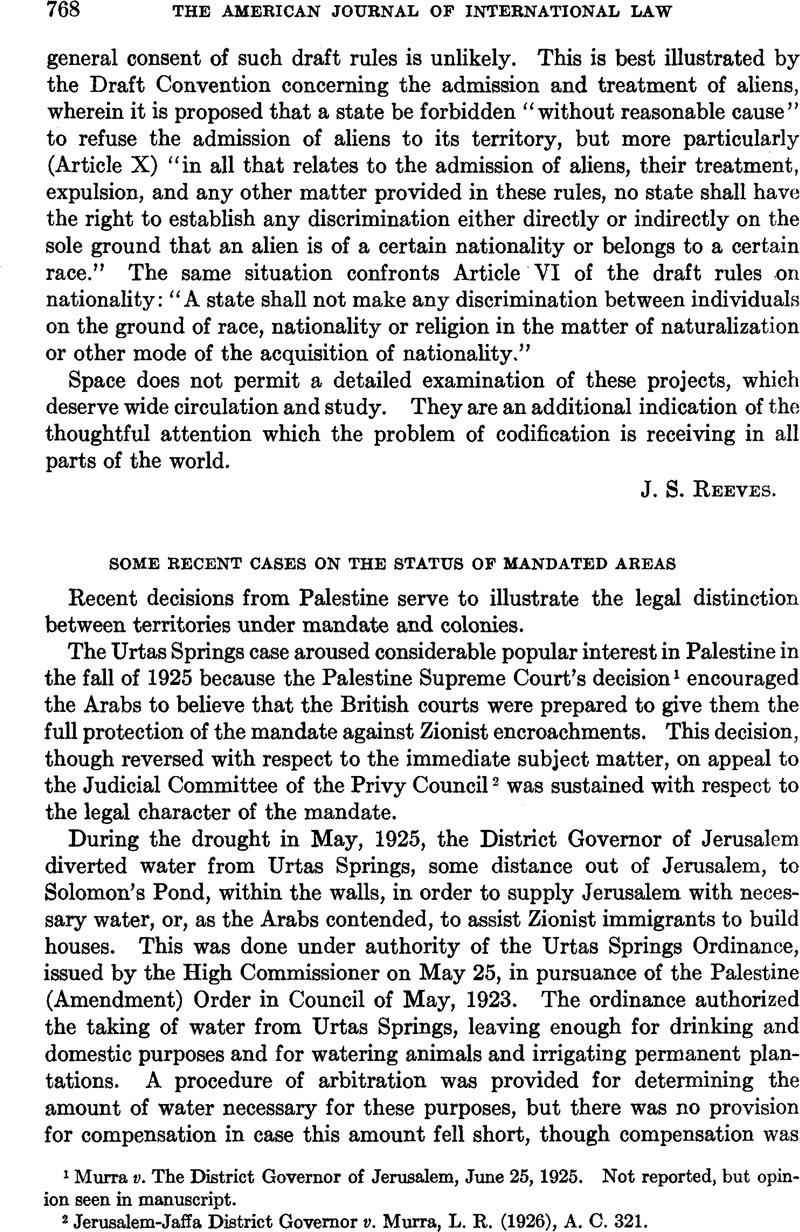Published online by Cambridge University Press: 04 May 2017

1 Murra v. The District Governor of Jerusalem, June 25,1925. Not reported, but opinion seen in manuscript.
2 Jerusalem-Jaffa District Governor v. Murra, L. R. (1926), A. C. 321.
3 1 Cranch, 137 (1803)..
4 American courts have sometimes intimated that natural law might be a ground for declaring statutes void: Terrett v. Taylor, 9 Cranch, 43; Downes v. Bidwell, 182 U. S. 244, 288; as indeed did English courts in some seventeenth century cases: Day v. Savadge, Hobart 85, 87; Dr. Bonham's Case, 8 Rep. 114 a, 4 Rep. 234; Thayer, Cases on Constitutional Law, Vol. I, p. 48, et seq. ; Wright, The Enforcement of International Law through Municipal Law in the United States, p. 224.
5 5 The writer has not seen the text of this opinion, but was informed of its substance while in Jerusalem.
6 Publications of the Permanent Court of International Justice, Series A, Nos. 2, 5.
7 Re Ezra Goralshvih, 1925, not reported, but opinion seen in manuscript.
8 An ordinance of Palestinian citizenship has since been promulgated.
9 This was emphasized by the Chairman of the Mandates Commission, 3rd session, Minutes, pp. 203, 205, 207.
10 Permanent Mandates Commission, 3rd session, Minutes, p. 310, 6th session, pp. 100, 116, 169, 172.
11 1 The application of a treaty to mandated territory, or the making of a treaty in regard to such territory, is likely to place permanent burdens on the territory or its inhabitants, or to confer upon the other contracting party privileges in the mandated territory not enjoyed by members of the League of Nations generally. Such effects are in danger of violating the terms of the mandate assuring administration for the benefit of the inhabitants, and equal economic opportunity for members of the League. In view of the fact that subsequent discovery of such violations by the Mandates Commission or the League Council could not in the case of a treaty be remedied by action of the mandatory Power alone as it could in the case of legislation, it would seem desirable that the Councils consent be given before any\ treaty is made applicable to mandated territory, unless such application has been expressly provided for in the mandate itself. See references, supra, note 10, and Wright, Michigan Law Review, May, 1925, pp. 30-31.
12 Wright, this JOURNAL , Vol. 17, p. 695, Vol. 18, p. 306.